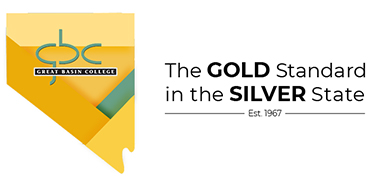- About
ABOUT GBC
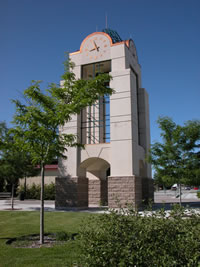
Welcome to Great Basin College!
Great Basin College wants to be your choice for higher education. GBC offers associate and baccalaureate level instruction in career and technical education and academic areas. About 4,000 students are enrolled annually online from across the country and on campuses and centers across 86,500 square miles, two time zones, and ten of Nevada's largest counties. We border Arizona, Oregon, Idaho, Utah, and California. We are GBC!
We are GBC!
- Admissions
ADMISSION TO GBC

- Academics
ACADEMICS AT GBC

For High School Students
CTE College Credit Program
High School/Dual Enrollment
High School FAQ
High School Students
- Student Services
STUDENT SERVICES

- GBC Online
Great Basin College is "The Gold Standard in the Silver State" when it comes to long-distance education and online education delivery. GBC offers a diverse array of certificate and degree programs that are completely online!
- Community
COMMUNITY
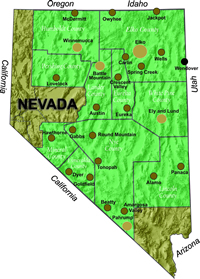
Great Basin College wants to be your choice for higher education. GBC offers associate and baccalaureate level instruction in career and technical education and academic areas. About 4,000 students are enrolled annually online from across the country and on campuses and centers across 86,500 square miles, two time zones, and ten of Nevada's largest counties. We border Arizona, Oregon, Idaho, Utah, and California. We are GBC!
- Find Information
FIND INFORMATION

Need to find COVID-19 information quick? Check out our Coronavirus (COVID-19) Information and Resources page!
FOR MORE INFORMATION
Institutional Research and Effectiveness
Berg Hall Room 107
Great Basin College
1500 College Parkway
Elko, NV 89801

Health Sciences and Human Services Research Projects
Individual Faculty Projects and Research
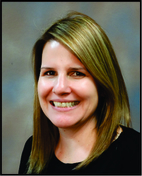
Heidi Johnston
Nursing Instructor, Health Sciences
Project:
“Creating a Rural Nursing Workforce”
Heidi Johnston completed a DNP Project titled “Creating a Rural Nursing Workforce”. This directly related to the implementation of our AAS nursing distance education program. The findings focused on program evaluation and showed that providing educational opportunities for students in rural locations helps create a rural nursing workforce and relates to the outcome set by Healthy People 2020 (2014) to improve access to comprehensive, quality healthcare services. The project added to the literature supporting the success of students using distance education technologies and offers ideas towards developing new models of educational delivery systems to increase the nursing workforce to care for rural populations nationwide. Creating new models of educational delivery practices in nursing is a step towards creating healthy communities and improving the nation’s health.
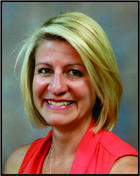
Tamara Mette
Nursing Professor
Project:
“A Multidisciplinary Perspective on Educating Students and Entry-Level Staff in Clinical Settings”
“A Multidisciplinary Perspective on Educating Students and Entry-Level Staff in Clinical Settings” was the focus of a completed DNP project by Tamara Mette. This DNP project included the introduction of an evidence-based framework, the One-Minute Preceptor (OMP) model, to a multidisciplinary population of patient-care staff in an acute care facility with the intention of improving comfort and confidence in the role of teacher/preceptor when sharing care with students and/or entry-level employees. Preceptors are charged with the responsibility of teaching as well as role modeling and socializing the learner to the professional role within practice (Bott, Mohide, & Lawlor, 2011). Rodrigues & Witt (2013) identified that competency in the role of preceptor exists through continued education with a focus on teaching in the clinical setting. Training sessions focusing on instruction and application of the OMP model were offered to multidisciplinary clinical staff and, also, health sciences college clinical faculty. Data gathered immediately following the training sessions revealed that the OMP training did result in the participants’ recognition of the value of the OMP model as well as increased levels of comfort in future teaching/learning interactions while sharing patient care with students and entry-level employees. The individuals who participated in these training sessions were employees of one of the clinical sites utilized by the nursing program.
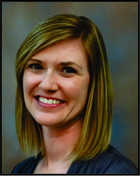
Staci Warnert
Nursing Instructor, Health Sciences
Project:
“The Purpose of the Clinical Post-conference and Teaching Practices Related to the Clinical Post-conference”
Staci Warnert is planning for her PhD dissertation. The dissertation research project will focus on “The Purpose of the Clinical Post-conference and Teaching Practices Related to the Clinical Post-conference”. Research participants will include clinical nursing faculty from across the nation. Theoretical knowledge learned in the didactic classroom is applied to real patients and experiences in the clinical setting through clinical learning. Clinical post-conferences occur after learning experiences in clinical and provide nursing instructors with opportunities to assist students with clarifying ideas and bridging the gap between theoretical knowledge and application to clinical. The research project will add to the limited literature describing the clinical post-conference in nursing education and will provide insight to improve teaching practices during the clinical-post conference.
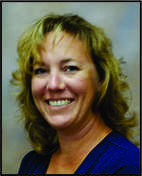
Stacy Rust
Nursing Instructor, HSCI
Project:
“The Impact of TeamSTEPPS to Build Collaboration with Nursing Staff on Nurse Staff Job Satisfaction”
Stacy Rust is currently implementing her DNP Project “The Impact of TeamSTEPPS to Build Collaboration with Nursing Staff on Nurse Staff Job Satisfaction”. This scholarly project will apply TeamSTEPPS in the form of training to nursing staff at the Winnemucca Humboldt General Hospital (HGH) in an attempt to improve collaboration with nursing management and all nursing staff to improve job satisfaction. TeamSTEPPS was developed by the Department of Defense (DOD) and the Agency for Healthcare Research and Quality (AHRQ) and is based on four areas: leadership, communication, situational monitoring, and mutual support (Clapper & Ng, 2014). The project will entail training in TeamSTEPPS with surveys prior and following training. The information received from the surveys will be compared to current, evidence-based literature to show whether there is a correlation to increased collaboration and nurse job satisfaction. All information will be provided to HGH, where a number of previous nursing graduates of GBC are employed, current nursing students work and will be employed. The idea behind the project is to promote a manner to increase nurse job satisfaction, improve nursing care, and retain nursing staff at HGH, which resides in the rural community of Humboldt County, Nevada. Following completion of the project, possibly this method may be utilized in other areas to improve nurse job satisfaction, improve nursing care, and retain nursing staff.

Michelle Husbands
Nursing Instructor
Project:
“Impact of Biblical Inspired Music Lyrics on Spiritual Self-Perspective, Self-Transcendence, and Level of Hope”
Michelle Husbands is at the beginning phase of implementing her DNP Project “Impact of Biblical Inspired Music Lyrics on Spiritual Self-Perspective, Self-Transcendence, and Level of Hope”. This project focuses on the integration of music therapy utilizing biblically inspired music and lyrics to heighten spiritual self-perception and self-transcendence among recovered substance users receiving outpatient treatment at Vitality Integrated Programs (VIP) Behavioral Health clinic. The theoretic foundations for the DPI project is supported by Joyce Travelbee’s The Human to Human Relationship Model (1971) which is rooted in existentialism and humanism with emphasis on the concept of hope and Pamela Reed’s (1991) Middle Range Self-Transcendence Theory that is founded on three pivotal concepts of self-transcendence, vulnerability, and well-being. The goal of the project is to promote an elevated state of spiritual perception and self-transcendence to foster a personal conviction and hope for successful long-term abstinence. These variables will be measured using Pamela Reed’s psychometric tools, Spiritual Perspectives Scale (SPS) and Self-Transcendence Scale (STS).
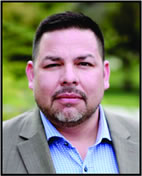
Oscar Sida
Human Services Instructor
Project:
“Motivational Interviewing: From Therapy to the Classroom and in
Between”
Oscar Sida will be presenting his research article “Motivational Interviewing: From Therapy to the Classroom and in Between” .
Abstract:
Teachers trained in MI can apply methods and techniques from motivational interviewing
in educational settings that rely heavily on empathetic listening and reflections. This method
builds rapport and trust between the student and the teacher while alleviating tension between the
teacher and the student by collaborating on the ambivalence rather than focusing on the student’s
lack of performance. This new and enhanced coping strategy for students will be naturally
generalized to new and challenging experiences both in and out of the classroom. By providing
this intervention early in the education of students they are empowered with cognitive skills that
have lifelong applications providing protective factors in mental health and interpersonal
relationships. Incorporating motivational interviewing (MI) techniques in classroom settings
serve as a powerful intervention for teaching efforts and learning outcomes as well as provide
an important coping strategy for students that have positive psychological benefits for the student.
The delivery of the technique relies heavily on the use of empathic listening and reflections. This
models for the student important interpersonal skills that will improve their own social skills and
strengthen the student teaching working relationship.
SAMHSA Grant
Oscar Sida serves as the Co-PI for The Southern Nevada Addictive Disorders Training Project. This is a training and workforce development initiative that began in 2015 and is based out of the Lincy Institute at the University of Nevada, Las Vegas. The three-year Substance Abuse and Mental Health Services Administration (SAMHSA) funded project is intended to strengthen and further develop the southern Nevada mental and behavioral health workforce by training health and behavioral health students, established behavioral health practitioners and allied professionals in the use of evidence-based Screening, Brief Intervention and Referral to Treatment (SBIRT) for Substance Use and Addictive Disorders.
Three goals of the project are to:
- develop and provide sustainable, coordinated, and comprehensive training and other resource materials designed to educate and support health and human service students, established practitioners, and allied professionals in the use of evidence-based and culturally responsive SBIRT models;
- improve students’ competencies and their intervention and service delivery effectiveness by providing intensive, didactic, and experiential training in SBIRT; and
- increase the number of students who complete undergraduate and graduate education with specialized training in addiction treatment.
Robert Wood Johnson Foundation (RWJF) Future of Nursing: Campaign for Action State Implementation Program (SIP) Grant Deliverable
RN-TO-BSN Data Collection Baseline Study Summary
General Overview:
In 2014, the Nevada Action Coalition, in partnership with the Nevada Department of Employment, Training and Rehabilitation’s (DETR) Health Care and Medical Services Sector Council and the Nevada Association of Nursing Executives (NANE), successfully pursued a Robert Wood Johnson Foundation “Future of Nursing: Campaign for Action” State Implementation Program (SIP) Grant.
One of the primary goals of this grant was to identify the efforts currently under way in the State of Nevada to offer RN-to-BSN educational opportunities to students. The objective of this RN-to-BSN study was to collect baseline data from the Nevada-based Nursing Schools, to help identify the Nursing Schools which offered RN-to-BSN programs in Nevada, and, to quantify the enrollment capacity and dynamics.
The following is a list of the Nevada Nursing Schools with active or pending programs that were asked to participate in this study.
INSTITUTION |
PRIVATE |
PUBLIC |
PARTICIPATION IN SURVEY |
|---|---|---|---|
Chamberlain College of Nursing |
XX |
Unable to provide breakdown of local data |
|
Roseman University of Health Sciences |
XX |
Unable to provide breakdown of local data |
|
Touro University Nevada |
XX |
Unable to provide breakdown of local data |
|
University of Nevada, Reno (UNR) |
XX |
Provided data |
|
Great Basin College (GBC) |
XX |
Provided data |
|
Nevada State College (NSC) |
XX |
Provided data |
Summary of Data Collected:
As we requested data elements from the participating schools, we learned that there are some opportunities to be more specific in the future on the details we seek to collect to ensure ease of completion and consistency among participants. However, the data that were collected provide an interesting baseline of information on the status of the three public Nursing Schools which participated in this study.
For More Information Contact
Institutional Research and Effectiveness
Berg Hall Room 107
Great Basin College
1500 College Parkway
Elko, NV 89801
Why Great Basin College
Great Basin College, "The Gold Standard in the Silver State", offers associate and baccalaureate level education in academic, career and technical fields. Welcoming over 4,000 students annually from all corners of the country, both online and at our various campuses and centers, GBC's presence extends across two time zones and spans more than 86,000 square miles throughout Nevada. A leader in rural higher education, GBC takes pride in developing students who are well-prepared to meet the demands of industry and who contribute to the success and prosperity of the local economy.
